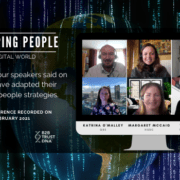Leadership – Maintaining Integrity
A key element of how we see leaders and how we select leadership candidates is their integrity. But what does this mean?
Integrity can be defined in two ways: as being honest and having strong moral principles, but also as being whole and undivided.
Both of these aspects are important in assessing leadership, particularly when we are trying to establish what makes a good leader. Hitler and Stalin had many of the traits that are useful in leadership – intelligence, communication skills and a good understanding of human nature, but we do not hold them up as exemplars of good leaders. Many politicians fail as leaders as well, and perhaps the common factor is a perceived or real lack of integrity.
Warren Buffett said about hiring leaders:
“…you look for three qualities. Integrity, intelligence and energy. If you don’t have the first one, the other two will kill you.”
This captures the dilemma; capabilities and drive are essential qualities for a leader, but if harnessed to the wrong purposes they can cause untold damage to their teams, other stakeholders and often, themselves.
As a leader, there are a number of areas we can reflect on:
- Consistency. Being whole and undivided can be thought of as having a single overarching set of values that are consistently applied no matter what the situation or the specific interaction. This creates a sense of authenticity – that what is seen of us is the real deal – which enables trust.
- Self-awareness. Are we being truly honest with ourselves – about the motives for particular actions? Are these actions consistent with our “inner compass” or are we reacting to a particular situation or set of emotions?
- How we handle conflicts of interest. These can arise in many ways – what is important is to recognise them and to ensure that the factors influencing a decision are fully understood at a personal level. How this is seen by others is also critical, particularly if they are looking for opportunities to find fault or bias in the decision-making process.
As an exercise, ask yourself how you define integrity. How does this impact the way you act as a leader and the way you expect your team and colleagues to act with you?
Calum Byers is an executive coach and strategy advisor who works with people and companies undergoing change. He is a Senior Associate with Customer Attuned.
- Leadership – Maintaining Integrity - April 2, 2019
- How to Successfully Coach an Individual - March 27, 2019
- Leadership – The Three Cs - March 22, 2019







